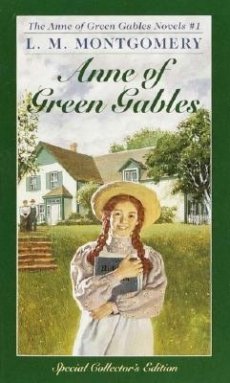Having characters we can relate to — or at least understand — is part of what makes us want to keep reading. If we don’t care about the main characters and what happens to them, we probably won’t turn that next page.
In my humble opinion, two very distinct things make characters real to the reader:
1. Quirks
What does your character do that makes her unique? What makes him stand out above the sea of words and last in your readers’ memories? Quirks.
I clearly remember how Anne in Anne of Green Gables dyed her hair green because she hated her red hair, and it’s been maybe 15 or 20 years since I read that book. Anne Shirley, as a character, sticks in my memory because of her quirks. I still frequently call to mind how she compared herself to her adoptive mother, Marilla, saying that she didn’t want to just walk along in her life (like Marilla); she didn’t mind thudding into the ground every so often if it meant she was able to soar with the eagles for a while in between. That thought has stuck with me for years because author L.M. Montgomery gave Anne memorable, believable character quirks.
2. Emotional Integrity
Characters’ reactions to situations, however far-fetched those situations may be, must retain emotional integrity in order for readers to stick with the story. If the character’s parent dies, and the character just keeps on blithely going about his daily life, we must understand why. Otherwise, you will alienate readers. It’s one thing to have unsympathetic characters, but quite another to have unsympathetic characters without reasons why.
For example, Scarlett O’Hara works as an unsympathetic character because we want to understand why she’s doing what she’s doing. However, unsympathetic characters with no reasons behind their actions (at least, no reasons apparent to the reader) will lose the reader. I was recently reading the third book in a triology where the main character had been fairly well established, and all of a sudden, he does something crazy that is never fully explained for the entire book. I finished the book since I was comparing notes on the book with someone else who was reading it, but I made the decision never to read any other book by that author again. I felt cheated.
On the other hand, you can find a book with an incredible premise that wouldn’t generally happen in daily life, like Margaret Atwood‘s The Handmaid’s Tale, and it comes across as believable because the characters act in ways that make sense for their situation. When the main character (whose real name we never learn) in The Handmaid’s Tale savors every detail in her room because she can’t visit many places in the outside world, it feels very real for her situation. When she’s afraid of being discovered for her dissension, it feels very true to her character.
What makes a character feel real to you?

